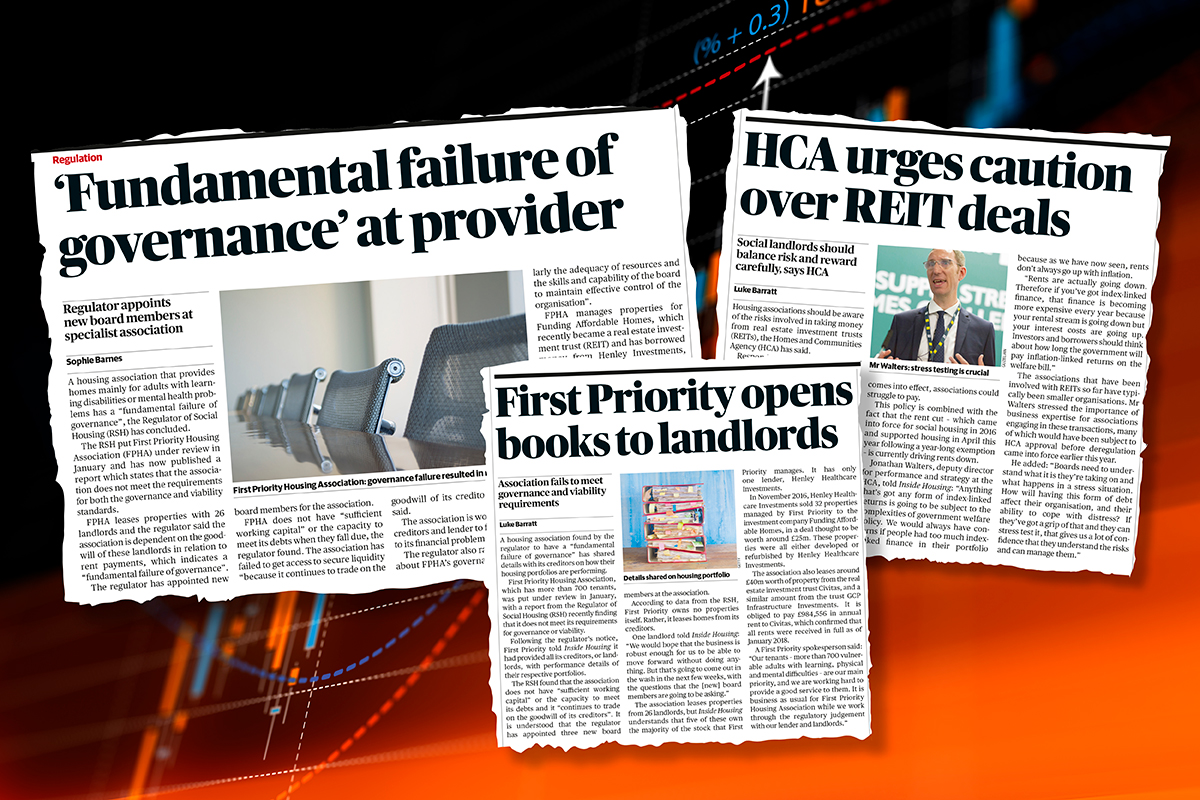You are viewing 1 of your 1 free articles
Report described association as ‘at risk of insolvency’ in 2015, court hears in landmark regulation case
The Regulator of Social Housing (RSH) found Inclusion Housing compliant with its standards in 2015 despite a report warning that the organisation was at risk of insolvency, the High Court has heard.
In an unprecedented move, Inclusion Housing Community Interest Company is attempting to quash a regulatory judgement it was issued by the Regulator of Social Housing in February 2019.
On Wednesday, Justice Martin Chamberlain was told that a report into Inclusion carried out by housing consultancy Campbell Tickell in 2015 “made concerning reading” for Inclusion and suggested it was at risk of insolvency.
Representing Inclusion, Daniel Stilitz QC said the report warned that the organisation “was taking all of the risk and none of the reward” in its lease arrangements with investors and concluded that it did not comply with regulatory standards.
Inclusion’s business model is based on leasing supported housing from investment funds such as real estate investment trusts through inflation-linked deals.
But after Inclusion handed the report to the regulator – then operating under the banner of the Homes and Communities Agency – it was told that the watchdog had satisfied itself that the issues in the report had been rectified and that the organisation was compliant with its standards.
No regulatory grading was published because Inclusion had fewer than 1,000 homes at the time.
The regulator is to present its defence in the High Court today. When responding to Inclusion’s submission of the claim earlier this month it said it would “contest the judicial review brought by Inclusion”.
The court heard that Inclusion had implemented the recommendations from the Campbell Tickell report and commissioned solicitor Ward Hadaway to review its lease terms.
Among its recommendations, Ward Hadaway said Inclusion should have break clauses in its leases, which often exceeded 40 years in length, but that its attempts to do so for existing deals were turned down by investors.
Break clauses were introduced for new leases along with other measures recommended by Ward Hadaway, Mr Stilitz said.
Inclusion is attempting to have its most recent regulatory judgement quashed, claiming that the RSH acted irrationally, unfairly and inconsistently.
It argued that its risk management and financial position have improved since being deemed compliant in 2015.
Mr Stilitz that it was Inclusion’s position that the judgement lacks specificity and described correspondence from the RSH after its publication in response to Inclusion’s request for more details as “Kafkaesque in its circularity”.
He claimed that Inclusion is unable to glean from the regulatory judgement what it must do to become compliant and that it lost six contracts as a result of the G3/V3 grading.
Pointing to the judgement’s assertion that Inclusion “is reliant on the goodwill” of its investors if risks to the business crystallise, he said it would instead be in their commercial interests to renegotiate agreements or transfer tenancies to another provider.
And he accused the RSH of a “failure to take on board the unique benefits” of Inclusion’s model in bringing specialist supported housing to market.
The hearing continues.











